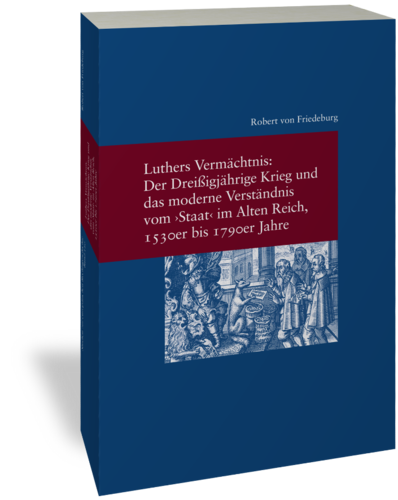Klostermann published „Luthers Vermächtnis: Der Dreißigjährige Krieg und
das moderne Verständnis vom ›Staat‹ im Alten Reich, 1530er bis 1790er Jahre“,
the 320th title in its Studien zur europäischen Rechtsgeschichte series.
ABOUT THE BOOK
In the German-speaking Reich, the
term "state" in its modern understanding was not coined with
reference to the early modern Old Reich as a whole and certainly not with the
consolidation of princely power over land and people as its aim. Rather, its
genesis was related to the bitter conflicts between emerging estates and
princes in the face of the devastations of the Thirty Years' War. Taking up the
contemporary polemics against criminal princes dating back to Luther,
Seckendorff's "Teutscher Fürstenstaat" (1656) was supposed to protect
its inhabitants from the incompetence and wickedness of the princes by means of
their own legal system and lawful administration (Policey) as a unit of land,
people and laws that allegedly reached far back into the Middle Ages. Since the
last third of the 17th century these ideas, the development of which the book
traces on a broad source basis, have increasingly found favour with many
princes and their advisors in Protestant and Catholic German countries.
The table of contents can be
found here
More info here


No comments:
Post a Comment
Note: Only a member of this blog may post a comment.